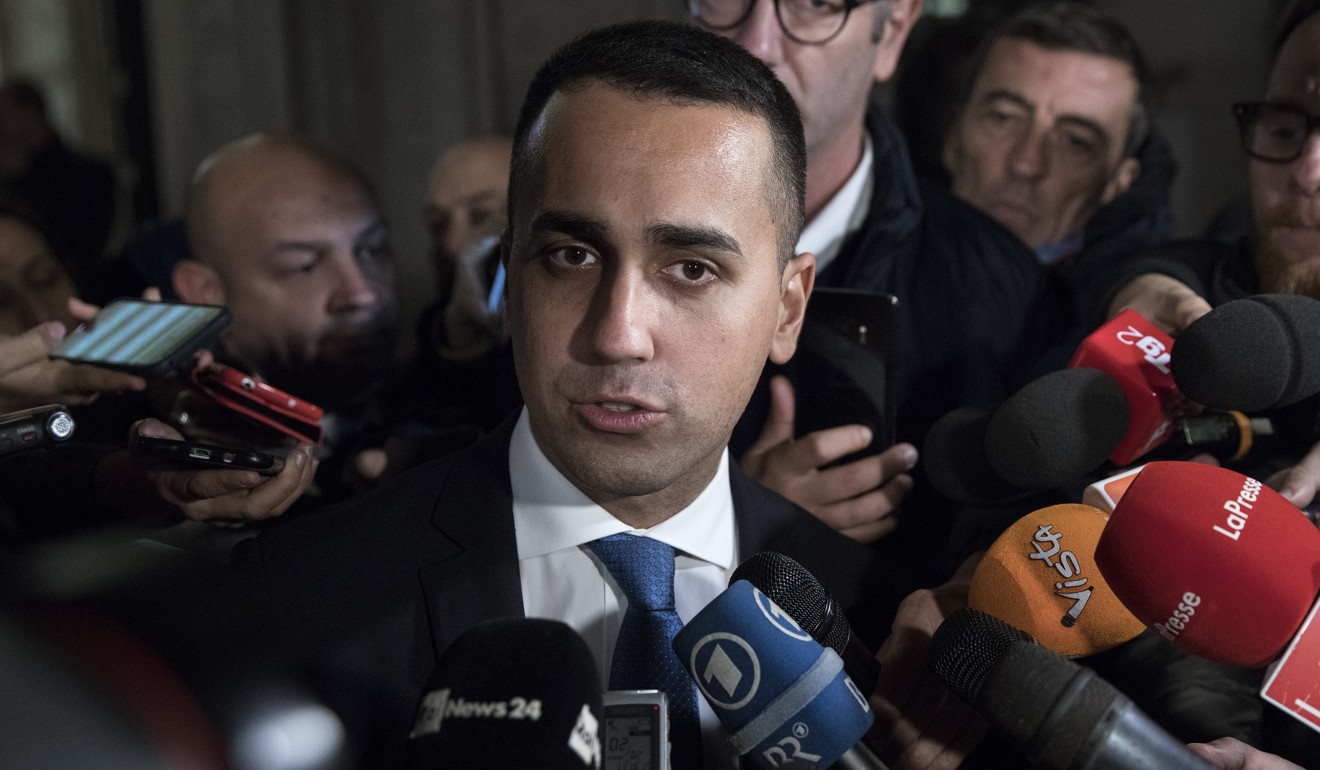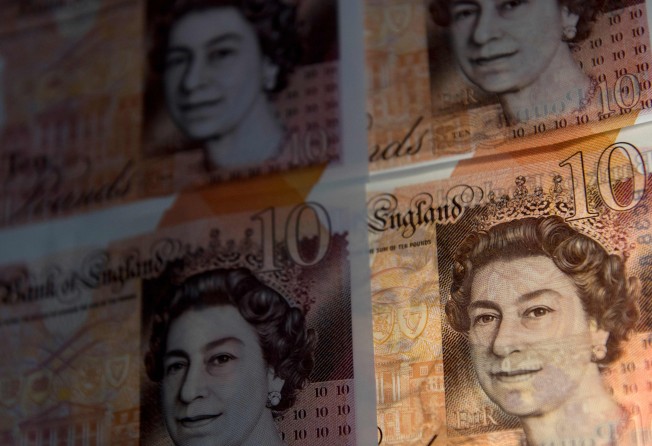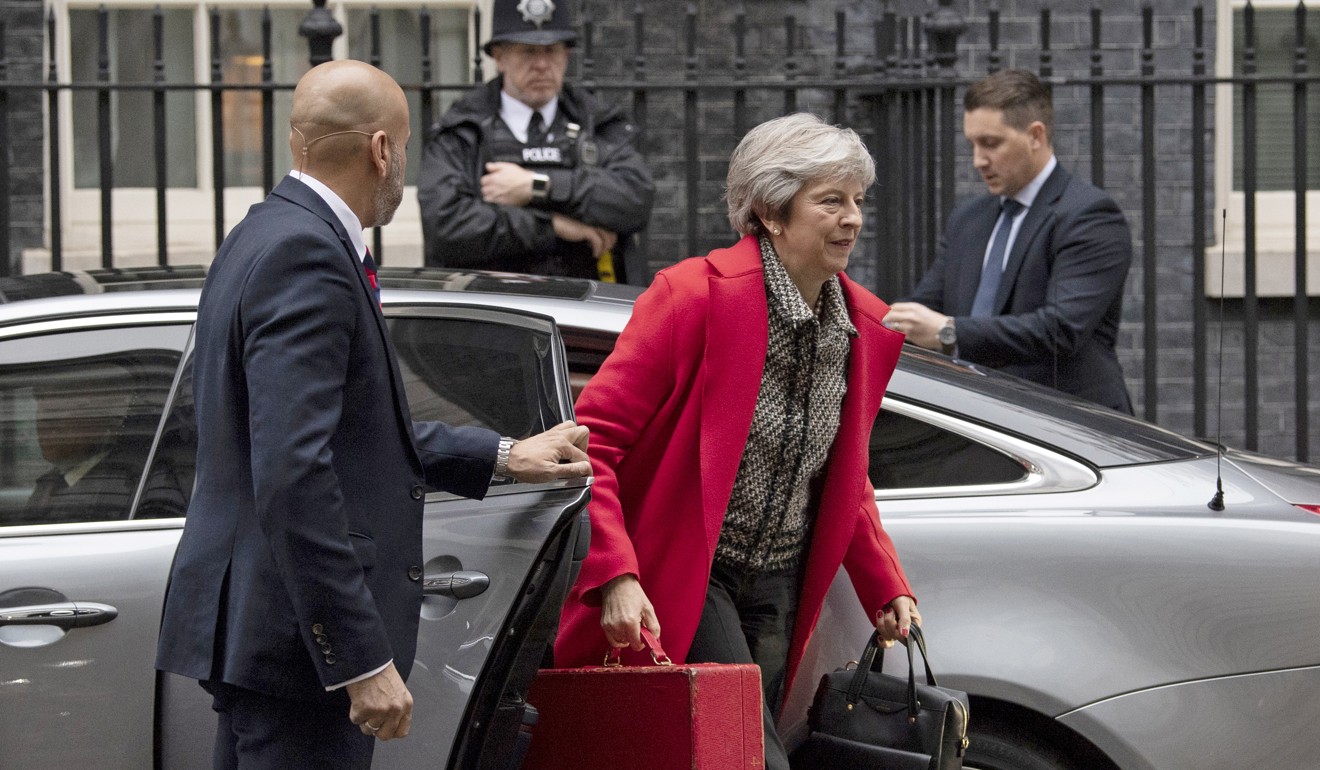
Brexit woes mean it’s now the pound, not China’s yuan, fuelling market turbulence
- Nicholas Spiro says politics now trumps economics for Britain’s currency, and the pound’s plunge is thoroughly overshadowing the yuan’s slide

A leading economy that has slowed sharply and is at daggers drawn over its trade relationship with its most important partner. A major currency that is one of the worst performing against the US dollar since April and is a focal point of anxiety in financial markets. And a crisis that, if it were to intensify significantly in the coming months, could become a source of systemic risk for the global economy.
Up until last week, this dire predicament was most closely associated with China. But, following the dramatic political developments in the UK over the past several days, it is now more synonymous with the mounting risks posed by Britain’s impending divorce from the European Union.
While many currency investors have been fretting about the yuan breaching the psychologically important threshold of 7 versus the dollar, it is the pound which is far and away the most vulnerable major currency right now. It is also a proxy for investors’ fears of the chaos that would ensue from a no-deal Brexit, mainly in the UK but also across the European continent, where growth is already slowing markedly.
Last Thursday, sterling at one point suffered its sharpest one-day fall against the US dollar in two years, dropping nearly 2 per cent as a flurry of ministerial resignations from Prime Minister Theresa May’s government increased the risk of Parliament rejecting a draft withdrawal agreement reached with Brussels.
According to data from Bloomberg, the one-month implied volatility of the pound-dollar exchange rate, known as “cable” in foreign-exchange markets, surged to its highest level since the aftermath of Britain’s EU referendum in June 2016. Currency strategists now describe sterling, which is down 10.5 per cent against the dollar since mid-April, as “untradeable”, such is the level of political uncertainty in the UK, Europe’s second-largest economy and the main global hub for foreign-exchange and derivatives trading.

What is more, the pound’s woes are starting to weigh on the euro, which has lost more than 7 per cent against the dollar since mid-April, although partly due to the US dollar rally. The heightened risk of Britain leaving the EU next March without arrangements in place to maintain orderly flows of goods and capital with Europe is undermining sentiment towards the single currency. With Italy’s commitment to the euro in question and the European Central Bank set to end its quantitative easing scheme next month, Brexit chaos is adding to concerns about the stability of the entire EU.
Not for the first time since the Brexit referendum, the political dysfunction and severity of market volatility in the UK evoke the debilitating effects of earlier crises in emerging markets. In addition to last week’s sharp fall in sterling, credit default swaps that insure the debt of UK banks and insurers rose to their highest levels in years, according to Bloomberg.
Over the past 2½ years, the pound has had more in common with some of the most volatile currencies in developing economies. In a hard-hitting report published in October 2016, the month when sterling plunged 6 per cent against the dollar, HSBC called the pound a “political currency” that had become “the de facto official opposition to the [British] government’s policies”. While this assessment rings even truer today, at least pressure from markets was enough to force politicians in many developing nations, notably those in Asia during the region’s financial crisis in the late 1990s, to implement policies that restored investor confidence.
In the UK, by contrast, the threat of severe financial and economic disruption – a no-deal Brexit would trigger a much steeper and disorderly decline in sterling, while the UK economy, according to an estimate published by the International Monetary Fund last week, would suffer output losses of 5 to 8 per cent compared with a no-Brexit scenario – has yet to convince politicians to change course.

While markets may yet compel the hardline Brexiters to soften their stance, especially if Parliament rejects the draft withdrawal agreement next month, the increasing nervousness, bordering on panic, in UK currency markets makes the speculation over whether the yuan will fall through the 7-per-dollar level seem rather trivial by comparison.
Although there should be no complacency about the risk of more severe capital flight should China’s currency weaken too quickly, the much more benign reaction to this year’s slide in the yuan suggests that investors have become accustomed to a more volatile exchange rate.
The same cannot be said for most pound investors, who resemble a deer caught in the headlights, preferring to stay on the sidelines, such is the level of uncertainty in British politics. In terms of riskiness, sterling is hard to beat.
Nicholas Spiro is a partner at Lauressa Advisory